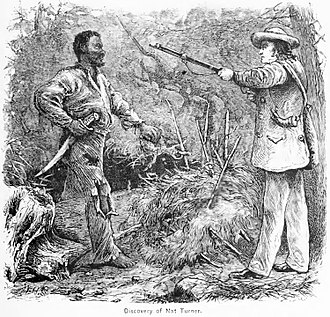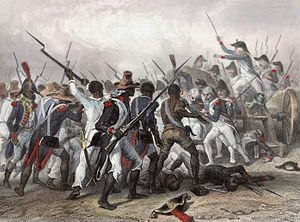Discover Your Roots
SIGN UPDiscover Your Roots
SIGN UPNat is a gender-neutral name of English origin, often used as a diminutive form of Natalie, Nathan, or Nathaniel. Its meaning reflects its association with these longer names, which carry connotations of birth and gift. In addition to its use as a given name or nickname, Nat holds various other meanings across different contexts. It is also an acronym for Network Address Translation in computing, a term in chemistry, biology, and medicine, and an abbreviation for several organizations, places, and other uses. The name Nat has a versatile and multifaceted significance, encompassing both personal identity and broader technical and cultural references.

Nat King Cole, born Nathaniel Adams Coles on March 17, 1919, was a renowned American singer, jazz pianist, and actor who made an indelible mark on the music industry. His career as a jazz and pop vocalist began in the late 1930s and spanned nearly three decades, during which he achieved remarkable success and recorded over 100 hit songs. Cole initially gained recognition as a jazz pianist and formed the King Cole Trio, which emerged as the best-selling group on Capitol Records in the 1940s. Transitioning to a solo singer in 1950, he became known as Nat King Cole. Despite his mainstream success, Cole encountered severe racial discrimination during his career. Notably, he hosted the groundbreaking NBC variety series, The Nat King Cole Show, becoming the first black American to host a nationally broadcast television show. His timeless classics such as "Unforgettable," "Smile," "L-O-V-E," and "Mona Lisa" continue to captivate audiences worldwide. Cole's influence and contributions to music have garnered numerous accolades, including a star on the Hollywood Walk of Fame, Grammy Lifetime Achievement Award, and induction into several prestigious halls of fame. His enduring legacy and musical prowess solidify his position as one of the most iconic figures in the history of music.

Nat Wolff, born on December 17, 1994, is an American actor, musician, and singer-songwriter. He first gained recognition for his work on The Naked Brothers Band, a Nickelodeon series created by his mother, actress Polly Draper, and co-produced by his jazz musician father, Michael Wolff. After the series, he and his brother formed the music duo Nat & Alex Wolff. Nat continued his career with lead roles in films such as Paper Towns, The Fault in Our Stars, and the Netflix adaptation of Death Note. Born in Los Angeles, Nat is the older brother of actor and musician Alex Wolff. His family has a prominent background in venture capitalism and diplomacy. Nat demonstrated musical talents at a young age, teaching himself to play the piano and writing his own songs. His early career included off-Broadway performances and starring in the musical comedy film The Naked Brothers Band: The Movie, which earned him recognition and awards. Nat's career has been marked by his versatility as both an actor and a musician, with successful albums released as part of Nat & Alex Wolff.

Nat Turner (1800-1831) was an enslaved Black carpenter and preacher who famously led a rebellion in Southampton County, Virginia in 1831. His four-day uprising resulted in the deaths of 55 white individuals and prompted a brutal retaliation in which 120 Black individuals were killed. Turner, captured and executed after the rebellion, shared his story with attorney Thomas Ruffin Grey, whose publication, The Confessions of Nat Turner, immortalized his legacy. Born into slavery in Virginia, Turner grew up deeply religious, having learned to read and write at a young age. He had visions that he interpreted as divine messages, and he conducted religious services, earning the nickname "The Prophet" among fellow slaves. Turner's strong convictions and religious beliefs motivated him to organize a rebellion against enslavement, and his actions have been the subject of numerous literary and scholarly works. His story continues to be a significant part of African American history and has been depicted in various forms of media. Nat Turner's impact as a leader and symbol of resistance remains a powerful and enduring part of American history.

Nat Turner's Rebellion, also known as the Southampton Insurrection, was a significant slave rebellion that occurred in Southampton County, Virginia, in August 1831. Led by Nat Turner, the revolt resulted in the deaths of between 55 and 65 White individuals, marking it as the deadliest slave uprising for the latter racial group in U.S. history. Despite the rebellion being swiftly quelled within a few days, Turner managed to evade capture for over 30 days. The aftermath of the revolt instilled widespread fear among the White population, leading to retaliatory killings of as many as 120 enslaved individuals and free African Americans. Subsequently, the Commonwealth of Virginia executed 56 enslaved individuals accused of participating in the rebellion, including Turner himself, and imposed oppressive laws restricting the rights and liberties of free Blacks. Nat Turner's education and role as a preacher were instrumental in the enactment of new laws prohibiting the education of enslaved people and free Blacks, limiting the civil liberties of free Blacks, and mandating White ministers' presence at worship services. The Nat Turner rebellion is considered by many as one of the most significant uprisings in American history. Turner, enslaved in Southampton County, Virginia, believed that revolutionary violence would compel Whites to recognize the cruelty of slavery. He meticulously planned the revolt, communicating his intentions to a select group of trusted fellow slaves and preparing for the uprising against the slaveholders in Southampton County. Turner interpreted atmospheric conditions as signs to commence the rebellion, and on August 21,

Nathaniel Greene Pendleton, born in 1895, was a multifaceted American figure known for his achievements in wrestling, film, and stage performance. Pendleton's wrestling career began at Columbia University, where he excelled as the wrestling team captain and later represented the United States at the 1920 Summer Olympics, earning a silver medal despite controversy surrounding the decision. Transitioning to professional wrestling, he teamed up with promoter Jack Curley and continued wrestling into the 1930s.In addition to his wrestling prowess, Pendleton ventured into stage and film. He graced Broadway productions such as "Naughty Cinderella" and "The Grey Fox," and made appearances in over 90 Hollywood films, often portraying supporting roles including befuddled good guys, thugs, and policemen. Notable appearances include "Horse Feathers" and "The Great Ziegfeld."Pendleton's personal life was also noteworthy, with familial ties to the early American silent film era, and his membership in several halls of fame, including the Columbia University Athletics Hall of Fame. He passed away in 1967, leaving behind a legacy celebrated in a biography by Mike Chapman and his induction into various halls of fame.---The summary provides an overview of Nathaniel Greene Pendleton's life, focused on his wrestling, stage, and film career, as well as his personal achievements and legacy. The content is presented in a neutral and informative tone, spanning within the specified word count.
All images displayed on this page are sourced from Wikipedia or Wikimedia Commons.We use these images under their respective Creative Commons or public domain licenses. Wherever applicable, author attributions and license information are provided. If you believe an image is used incorrectly or outside its license terms, please contact us so that we can review and correct the issue.